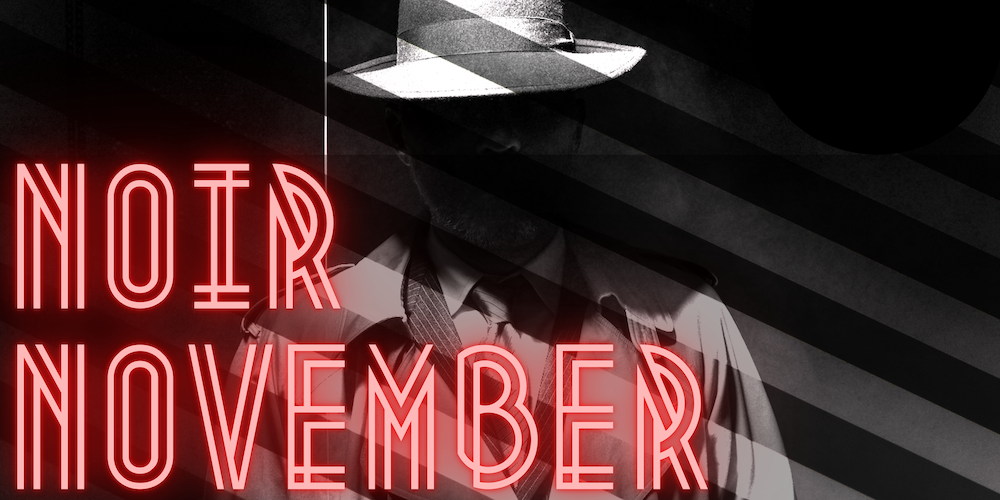Noir November: Le Cercle Rouge
Written by Cameron Geiser
Every day for the month of November, Cameron Geiser is reviewing a noir film (classic or neo) for Noir November. Today covers yet another film by Jean-Pierre Melville: Le Cercle Rouge.
Taking a U-turn back to France, and more importantly to filmmaker Jean-Pierre Melville, Le Cercle Rouge is a return to the criminal underworld he had momentarily left behind to film his incredibly personal World War 2 French Resistance film, Army of Shadows. Jean-Pierre Melville’s twelfth film has a tightly packed story with a superb cast of characters, all of which are dynamic, engaging, and memorable. The film opens similarly to Le Samouraï with another invented epigraph by Melville, “Siddhartha Gautama, the Buddha, drew a circle with a piece of red chalk and said: ‘When men, even unknowingly, are to meet one day, whatever may befall each, whatever the diverging paths, on the said day, they will inevitably come together in the red circle.’”
While the whole cast is excellent overall, there are three characters that brought a bit of cinematic magic to the whole affair. First there’s Corey (Alain Delon, of Le Samouraï fame) an expert thief who begins the film by being released from prison early for good behavior. Just before his release, a prison guard tips him off about a major jewelry store that’s rumored to be ripe for the picking. The other two are Vogel (Gian Maria Volontè) a notorious criminal who got caught in Marseille and was being personally transported by train with Le Commissaire Mattei (André Bourvil), a tough as nails commissioner who stops at nothing to get the job done. Naturally, after Vogel unexpectedly crashes out of the train’s window and starts an impromptu manhunt through the French countryside, Commissaire Mattei uses every asset in his power to track down the criminal.
Yves Montand in Le Cercle Rouge.
While Vogel was running through the woods from the cops, Corey made his way to Rico’s (André Ekyan) apartment, a former colleague of his. Rico’s been making power moves ever since Corey’s jailhouse detour, one of which involved dating Corey’s former girlfriend. So, Corey makes a power move of his own by robbing Rico of his guns and money right there in his home. After this, Corey buys a car with Rico’s money, and heads out to a diner for lunch. While eating there, Vogel crawls out of the woods nearby and sneaks into Corey’s trunk. Corey drives out to the middle of an empty field, gets out of the car, and sits nearby on some farming equipment before telling Vogel that he knows he’s in the trunk and to come out as he has nothing to fear (Corey had stashed his two guns in the trunk anyways, so he knew Vogel would have them). What follows is a crucial scene, two like-minded criminals with an attitude of stoic nonchalance that suggests that beyond their sparse dialogue, the potential of a lucrative partnership goes without saying. What begins as a confrontational beat turns towards cooperation with relative ease once each man sizes up the other.
Shortly after this newfound agreement, Vogel hides back in the trunk to avoid any prying eyes of the law, and they’re off to Paris. Further down the road, two of Rico’s henchmen force Corey off the road and walk him off the side of the road. Just before they kill Corey for stealing from their boss in humiliating fashion, Vogel climbs out of the trunk, takes their guns, and shoots each man with the other’s gun while holding the pistols with a handkerchief. No fingerprints here, only a newly cemented friendship in crime. The rest of the film is devoted to the preparation, and execution, of that jewelry heist mentioned earlier. Corey and Vogel make it back to Paris to prepare for the logistics of the heist, but Commissaire Mattei is tracking any and all movements that could be attributed to Vogel. The Comissioner turns up at the scene of Rico’s murdered men and turns over every rock, clue, and hint of Vogel’s involvement.
Meanwhile, Corey and Vogel agree that they will need at least two more people to adequately complete the job. First they need an expert marksman, one that knows everything there is to know about guns and ballistics for a very precise shot. Corey has a contact he used to know, though he doesn’t know if the old man is still up for the task, but phones him anyways. That just so happens to be Jansen (Yves Montand), a down-on-his-luck ex-cop with a heavy drinking problem. He answers the call despite a horrifying hangover, but agrees to help. The last piece of the puzzle is a fence to sell the jewelry to afterwards. They go to a farm outside of Paris and convince the fence (Paul Crauchet) that their product will be worth the risk, he agrees. While the three criminals are out haggling with their newfound fence, Commissaire Mattei is back in Paris hounding Santi (François Périer), the owner of a well established nightclub, known for its connections to the Parisian underworld. After everything is in order, they attempt the heist in a scene that’s both wordless and yet excruciatingly full of a taught anxiety knowing that they could be discovered or caught at any moment. It’s a highly memorable heist sequence that both calls back to cinema’s criminal capers of the past, and yet foreshadows how some heist films are oriented in the decades that followed.
In the end, the fence denies their haul citing that it’s far more risky than he had anticipated with Vogel’s escape raising the awareness of local law enforcement. Though in reality, he had been given orders from Rico not to pursue the product, and to direct Corey towards Santi, suggesting that he may know of a fence willing to take the jewels. Of course, the fence that Santi knows is Commissaire Mattei in disguise. Corey sets up a time and place to make the tradeoff and, as with all of Melville’s crime films, it doesn’t go well for our anti-heroes. This was an excellent Neo-Noir from Jean-Pierre Melville. Check out his work sometime, his films influenced leagues of filmmakers, genres of filmmaking, and most importantly; they’re a good time!
Cameron Geiser is an avid consumer of films and books about filmmakers. He'll watch any film at least once, and can usually be spotted at the annual Traverse City Film Festival in Northern Michigan. He also writes about film over at www.spacecortezwrites.com.






